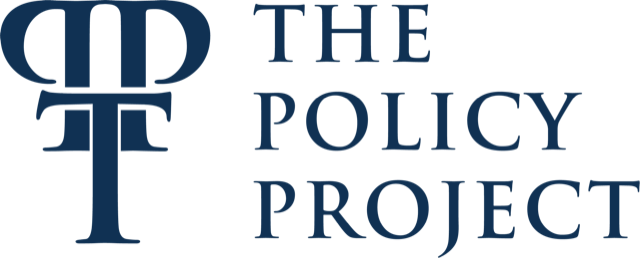RESOURCES
DID YOU KNOW?
THE IMPLICATIONS OF SHARING EXPLICIT IMAGERY
Last year in the United States, 1 in 3 minors reported they had an online sexual interaction. 1 in 4 minors agree it’s normal for people their age to share nudes with each other. And 1 in 7 minors admit to having shared their own explicit imagery with others. It is important that kids know it’s illegal to share naked photos of minors, even if they are photos of themselves. Learn more about the implications of teens sending explicit imagery at this link.
MANDATORY REPORTING LAW
Utah law requires any person over the age of 18 to report suspected or known abuse of a child immediately to Child and Family Services or to a law enforcement agency. You can report anonymously and if you report in good faith, you have immunity from prosecution. It’s our responsibility to protect children.
Utah Child Abuse Reporting Law
Utah Child Abuse Hotline: 1-855-323-DCFS (3237)
TAKE IT DOWN: NUDE PHOTOS
If you or anyone you know has a nude or partially nude photo circulating of you online that was taken when you were under the age of 18, there’s a free service called Take it Down that can help you remove or stop it from being shared online. You can remain completely anonymous while using this linked service.
SEX OFFENDER REGISTRY
Most perpetrators of child sexual abuse have many victims before they are caught. But once they are caught, they are placed on a sex offender registry, which is available online and open for the public to see. If you want to know if any registered sex offenders live near your home, click this link, type in your address and you can check for free.
CHILD SEXUAL ABUSE IS PREVENTABLE
65% of Utahns believe child sexual abuse is not an issue in their community, 60% of Utahns believe child sexual abuse is not preventable. Both of these perceptions are false. Utah has a higher rate of child sexual abuse and adult sexual assault than the national average, and research shows prevention education dramatically decreases the likelihood of being abused. Let us know in the comments, why do you think there’s such a mismatch between our perceptions and the reality here in Utah?
HOW TO RESPOND TO SEXTORTION
In 2021, there were only 139 reported cases of financial sexual extortion targeting minors in the US. By 2023, there were over 26,000 reported cases. That’s an 18,000% increase in just two years. There have been at least 39 suicides as a result of financial sextortion. Young boys are at the greatest risk of being targeted. At this link and this link you’ll find five ways to respond to sextortion. Make sure you share these with all kids within your sphere of influence.
WHAT CAN YOU DO?
PREVENTION EDUCATION WORKS
Prevention education works. Educate yourself as much as you can to protect all children from sexual abuse. We’ll list some of our favorite prevention education resources below, and let us know what your favorite resources are in the comments!
Prevention education resources:
RESPONDING TO ABUSE DISCLOSURES
Make a plan, right now, to respond to abuse disclosures — this way you can respond calmly and appropriately as needed. Best practice for responding to a disclosure of abuse is to reassure the child you believe them, let them know what happened is not their fault, listen calmly, ask open-ended questions, and then write down any facts and report as soon as possible.
Utah Child Abuse Hotline: 1-855-323-DCFS (3237)
WHAT TO DO IF YOU SUSPECT ABUSE?
Sometimes we hear from people they suspect a child is being abused, but they aren’t certain. Just remember it’s not your job to determine if abuse is actually happening. That’s the job of law enforcement and child protective services. But it is your job to report. In Utah, every person is a mandated reporter – we must do our job effectively so law enforcement and child protective services can do their jobs.
Utah Child Abuse Hotline: 1-855-323-DCFS (3237)
THE POWER OF OPEN COMMUNICATION
Open communication is one of the most powerful ways to prevent child sexual abuse. Believe it or not, most kids start to talk to each other about sex between the ages of six and eight. You can become your child’s trusted go-to person by talking to them early and often about body safety and boundaries.
Click here for age appropriate conversation guides by Saprea.
START CONVERSATIONS YOUNG
You can help reduce the risk of sexual abuse by having ongoing open conversations with your child, starting when they’re a baby. When your kids are young, make sure they know they can tell you anything and you will believe them. Always use proper names for all body parts and help facilitate body autonomy. You can teach your young children the difference between secrets and surprises, you can demonstrate healthy boundaries and appropriate touch, and check in with them regularly as they grow and learn.
Here is a link to tips for talking with kids.
CHILD ON CHILD SEXUAL ABUSE
Child on child sexual abuse is on the rise. Have you ever wondered if your child is demonstrating normal healthy sexual behavior, or if their behavior seems problematic? Darkness 2 Light has a resource you can use as a guide.
If your child abuses another child, you are required by law to report it. Research shows children who receive proper education and treatment for problematic sexual behavior are very unlikely to to abuse another child again.

